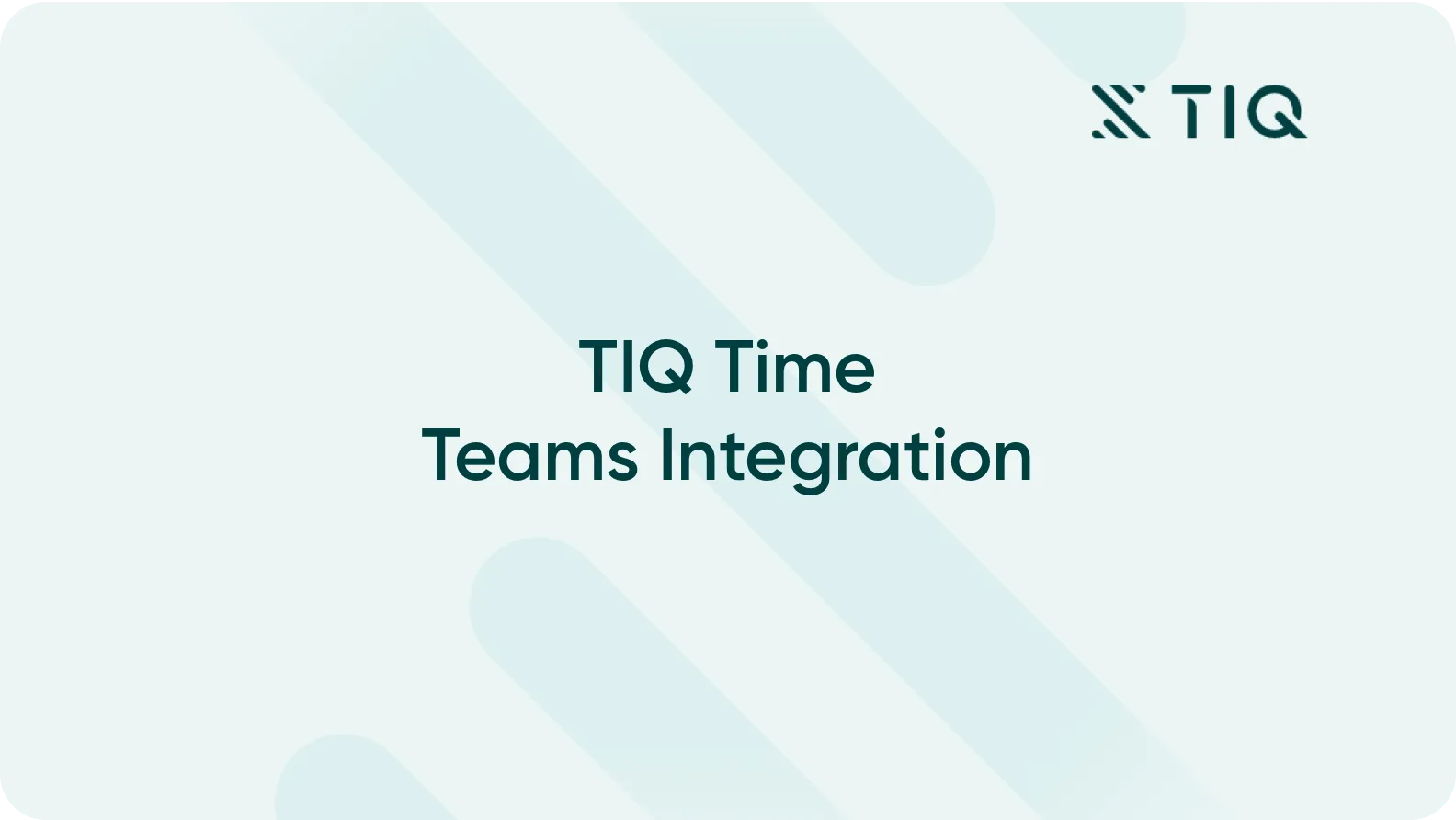How RPLT RP legalitax streamlined time tracking: Insights from Paolo Grandi
RPLT RP legalitax, a leading Italian law-firm with over 130 fee-earners across offices in Italy, made the strategic decision several years ago to further modernise its internal operation.
TIQ Time Product Update: Summer 2025
Here are some highlights from recent TIQ Time updates during the summer of 2025. Please reach out to our support team for more information.
UK Firm TWM Solicitors Chooses TIQ Time as New Time Tracking Solution
TWM Solicitors, a leading UK law firm, has selected TIQ Time as their new time tracking solution. This marks an important step in TIQ Time's growth in the UK market.
The latest version of our mobile app is here, offering even more tailored solutions for modern lawyers and law firms.
Smarter Time Entry Management: AI Narrative Assistance
Introducing TIQ Time’s AI Narrative Assistance: a solution designed to automatically rewrite time-entry narratives.
Here are some highlights from recent TIQ Time updates during the winter of 2024. Please reach out to our support team for more information.
TIQ and IRIS Enter Strategic Partnership for Automated Time Capture in the DACH and Benelux Regions
TIQ is excited to announce a strategic partnership with IRIS to extend its reach into the legal markets of the Benelux and DACH regions.
TIQ Time Product Update: Summer 2024
Here are some highlights from recent TIQ Time updates during the summer of 2024. Please reach out to our support team for more information.
TIQ and Lexsoft Systems Forge Strategic Partnership for Automated Time Capture in Spain and South America
TIQ is pleased to announce a strategic partnership with Lexsoft Systems to extend its reach into the legal markets of Spain and South America.
TIQ Strengthens Leadership Team with Appointment of Robert van Loon as COO
In his new role, Robert will spearhead sales, business development, partner management, marketing, and delivery strategies, further enhancing TIQ's position as the market leader in Europe.
5 Reasons Why Time Entry For Lawyers Is Hard
Time entry for lawyers is one of the most challenging tasks in the legal profession. With the intricacy of lawful cases, the amount of administrative work to finish, and the rising interest in precision and responsibility, it very well may be challenging to precisely and conveniently record the time spent on each case.
How To Identify Wasted Time and Inefficiency in Your Law Firm
Time is valuable for all businesses, but research suggests that only 60% of work time is spent effectively. Unfortunately, most employees are prone to distraction at work, resulting in ineffective time use. This behavior can adversely impact your firm's profitability.
10 Key Law Firm Billing Guidelines
The success of a law firm depends on several factors, including efficient and effective billing practices. Proper billing practices help law firms generate revenue, manage costs, and maintain good client relationships. In this article, we will discuss the key guidelines that law firms should follow when billing clients.
Ultimate Time Management Guide For Lawyers
Time management plays a very crucial role in our day-to-day work and the activities we carry out. Managing our time properly means getting the best of the hours available in a day. How we manage our time has a direct relation to how we manage our work.
TIQ is ISO 27001 Certified
We are delighted to announce that TIQ is fully ISO 27001 certified. Achieving this leading certification highlights the strength of our privacy and security program and demonstrates our commitment to protecting our clients’ data.
Time Capture Benefits for Law Firms Offering Flexible Workplace Arrangements
Automated time capture software aids law firms offering flexible workplace arrangements beyond the development and assessment of work life balance:
TIQ Time’s Microsoft Teams Integration
TIQ is delighted to announce the rollout of our cutting-edge integration with Microsoft Teams. Our new development makes it possible for lawyers to capture the time spent on both planned and unplanned calls made through the Microsoft Teams application.
TIQ’s New Mobile Application Now Available
TIQ is delighted to announce the release of our renewed mobile application. The new application has been completely rewritten and redesigned to provide the functionality modern lawyers and law firms need.























